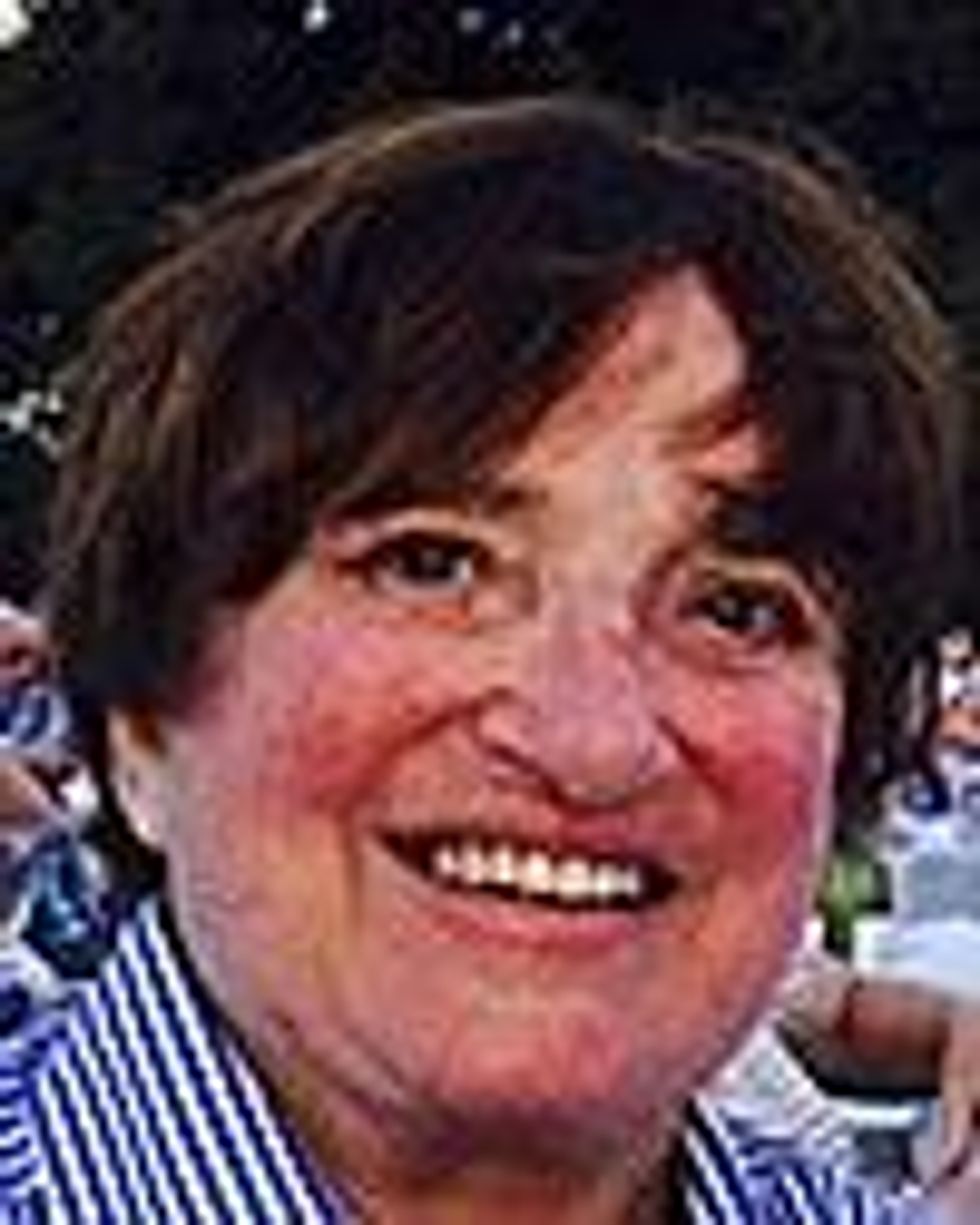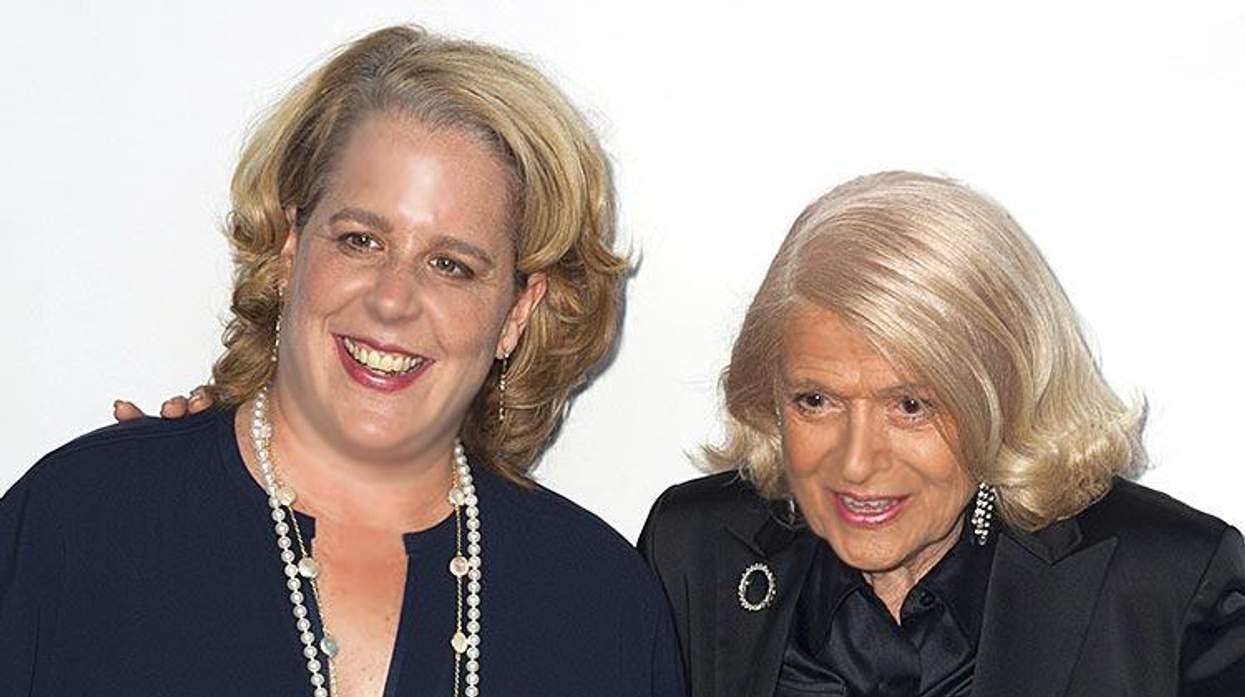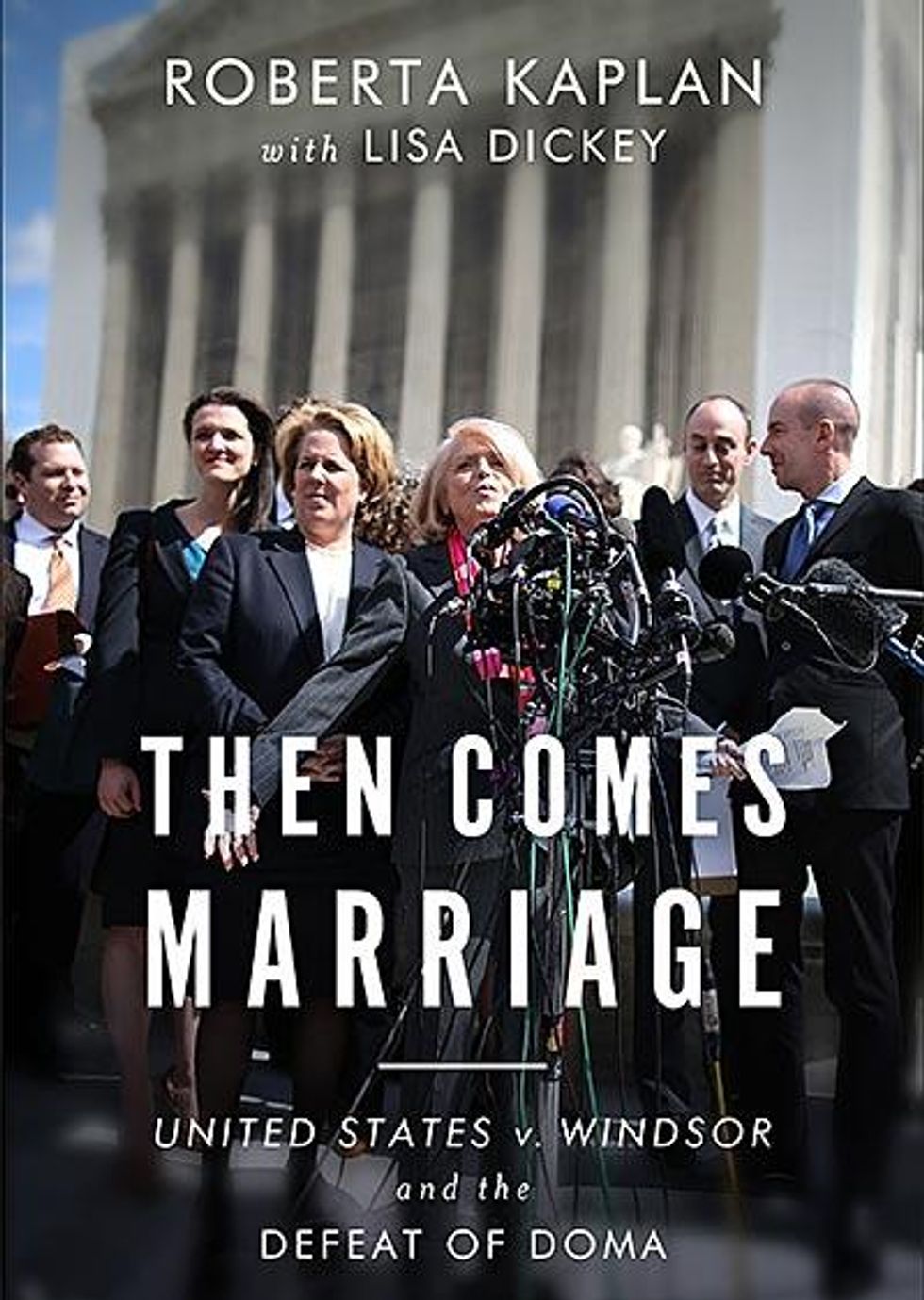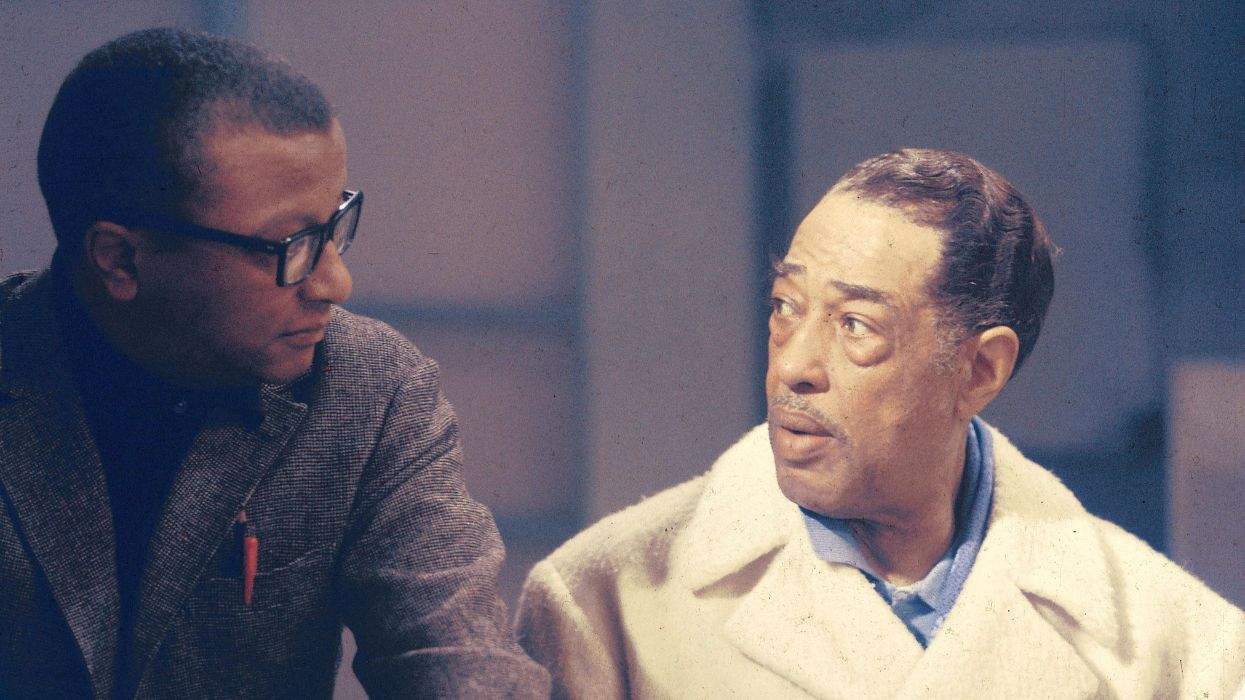In the fall of 1959, at age 17, I told my Jewish mother that I was a lesbian. Mrs. Chernick (my mother) had sent me to the Banff School of Fine Arts in Canada to become a thespian. When I got on the train to Alberta, I immediately fell in love with another young woman from Winnipeg. Obviously, I had not heard my mother correctly. But that summer I read a magazine called The Ladder. In it was an article by Del Martin and Phyllis Lyon who said there was nothing wrong with being a lesbian (but think about moving to a big city immediately!). My mother and I were in the kitchen when I came out to her and she grabbed a knife and said "Here, stab me in the heart, pour salt in the wound!" Obviously, she did not take it well. But I believed what Del and Phyllis had written, that there was nothing wrong with me. So in 1962 I moved to New York's Greenwich Village to meet other out and proud women. I hit the clubs and was immediately arrested for female impersonation, but that is different story.
Thirty-two years later, in 1991, another lesbian came out to her Jewish mother (had I known her at the time, I would have warned her not to do it in the kitchen). When Roberta Kaplan told her mother she was gay, her mother kept banging her head against the wall. Needless to say, Mrs. Kaplan took it as well as Mrs. Chernick.
Roberta was so closeted that while attending Harvard, she got the reputation of being a neoconservative, reactionary homophobe because she yelled at a woman she was secretly in love with for falling for another woman! She enrolled in law school at Columbia, and after graduating at age 24, she finally "kissed a girl." But Roberta was petrified of coming out publicly. She did not know that closets were vertical coffins that suffocated those inside to death. So in 1991, Roberta Kaplan, who was just coming out and was seriously depressed and anxious, saw a therapist for two sessions to try to get help. And that therapist's name was Thea Spyer.
Roberta was scared of not being able to have a relationship, a family, and a normal life. But Thea said "it was possible to have a fulfilling relationship and happy life even if you are a lesbian." And then she told Roberta about her 25-year relationship with a beautiful and brilliant IBM math wiz named Edie Windsor.
Eighteen years later, 81-year-old Edie Windsor sought legal help. Thea had died of MS and although Edie and Thea had been married in Canada in May, 2007, because of the Defense of Marriage Act, their marriage was not recognized and Edie had to pay $363,053 in estate taxes. Edie went to Lambda legal, because she and Thea had contributed to them, and a junior attorney told her it was the "wrong time" for the movement. The Human Rights Campaign gave her the "cold shoulder," and the ACLU agreed with them. Mary Bonauto of the Gay and Lesbian Advocates and Defenders had filed a lawsuit in Massachusetts challenging DOMA on behalf of eight couples and three widowers. Mary's strategy of attacking DOMA so soon was not exactly greeted with enthusiasm by others in the LGBT movement. Both Lambda and the ACLU took the position that Mary was moving too fast and could create bad legal precedents that would be damaging going forward. (We heard the same scripted response when my wife and I were the first to sue for marriage rights in California in 2004. "The time is not right! We have a plan," said major LGBT attorneys. Of course, after, they jumped in with their own clients, and we won.)
Besides, the LGBT legal cabal felt that the issue of a widow having to pay estate taxes was not the issue that would defeat DOMA because Edie was "just a bit too wealthy and privileged to be the face of gay rights." Really?
When Robbie Kaplan was called by an activist trying to help Edie get an attorney, Robbie walked four blocks over to Edie's apartment, excited to know that she was going to meet the woman whom Thea Spyer, her former therapist, had told her about all those years ago. She showed Edie a video of her 2006 oral arguments in the New York marriage case, which she had argued brilliantly but had lost (yet several law school professors have used her arguments in their classes).
Edie Windsor immediately wanted Robbie to represent her. After the movement's organizations refused to represent her, here was a major law firm willing to take the case pro bono.
What made Edie's case so unusual was that it went to counter to the gay legal organizations who represented multiple plaintiffs. Also, these organizations didn't want to focus on the lack of legal protections same-sex couples experienced and penalties they incurred because of a lack of federal recognition; they wanted to focus on smiling couples, holding hands and talking all about love, because that is what their focus groups told them people wanted to see.
Robbie, this brilliant, experienced attorney did not listen to the organizations. She was an experienced litigator and was going to win by focusing on two things.
l. Unfair taxation, which is something she felt even conservatives understood. 2. Edie Windsor, Edie Windsor, Edie Windsor.
Robbie's new book, Then Comes Marriage; United States v. Windsor and the Defeat of DOMA, goes into the drama, the behind-the-scenes struggles, fights, attacks, and competition Robbie had to endure. And that was just from our side!
This book tells all. Two great love stories (Robbie and Rachel, Thea and Edie), the trial, and all the internal struggles. It was so interesting and well-written that I could not stop reading it.
In March 2013 my wife and I flew to Washington to go to the U.S. Supreme Court to see the arguments in the Proposition 8 case. We had filed a lawsuit against Prop. 8 through our attorney, Gloria Allred (whose firm had won our marriage case), but we had lost the Prop. 8 case in the California Supreme Court. So we went to D.C. to watch the legal conservative megastar Ted Olson argue in the U.S. Supreme Court.
I can't tell you how disappointed I was. One justice referred to our movement as "an experiment," and Olson didn't respond. Another justice referred to incorrect negative information about children raised by same-sex couples, and Olson didn't answer. I had thought of him as "the $6 million Wizard of Odds." But I was livid when I walked out of the courtroom. Because of the huge press buildup around this famous Republican attorney who had won case after case at this court (including Bush v. Gore), I had expected more.
The next day, the Windsor case made up for everything. I had read about Roberta Kaplan, but because Robbie wanted Edie and Thea's great love story very public, most of the articles, as planned, were about her client. So when I watched her oral arguments, this now-out, proud lesbian partner of Rachel and mother of Jacob pleaded the case with such brilliance that there was not one thing they could get her on. Her arguments came not only from her brain but deep down from her soul. She painted the story of Edie Windsor and Thea Spyer with such passionate strokes that many of us in the courtroom who already knew the story sat there mesmerized and crying.
A lot of attorneys had helped Robbie prepare, but when she stood up in the Supreme Court for the first time in her career, she hit it out of the ballpark.
We knew this was it. We knew that this would go down in history as the case that not only brought down DOMA but paved the way for marriage equality, which in turn will be the Trojan horse in which all of our equal rights will finally arrive.
Decades from now, when we think of winning marriage equality, the picture that will indelibly be etched into all of our memories is the one of Edie Windsor, almost running down the Supreme Court steps, pink scarf flying in the wind, beside her unstoppable attorney, Roberta Kaplan, waving to the thousands of supporters, cheering them on to what became our greatest victory. And this is the picture that will go down in history. Mazel tov!
Roberta Kaplan will be taking her new book on the road with readings around the country, with the first date at the Los Angeles Public Library on Monday. Click here for information on dates in Seattle, New York, and the Bay Area.

















Charlie Kirk DID say stoning gay people was the 'perfect law' — and these other heinous quotes
These are some of his worst comments about LGBTQ+ people made by Charlie Kirk.